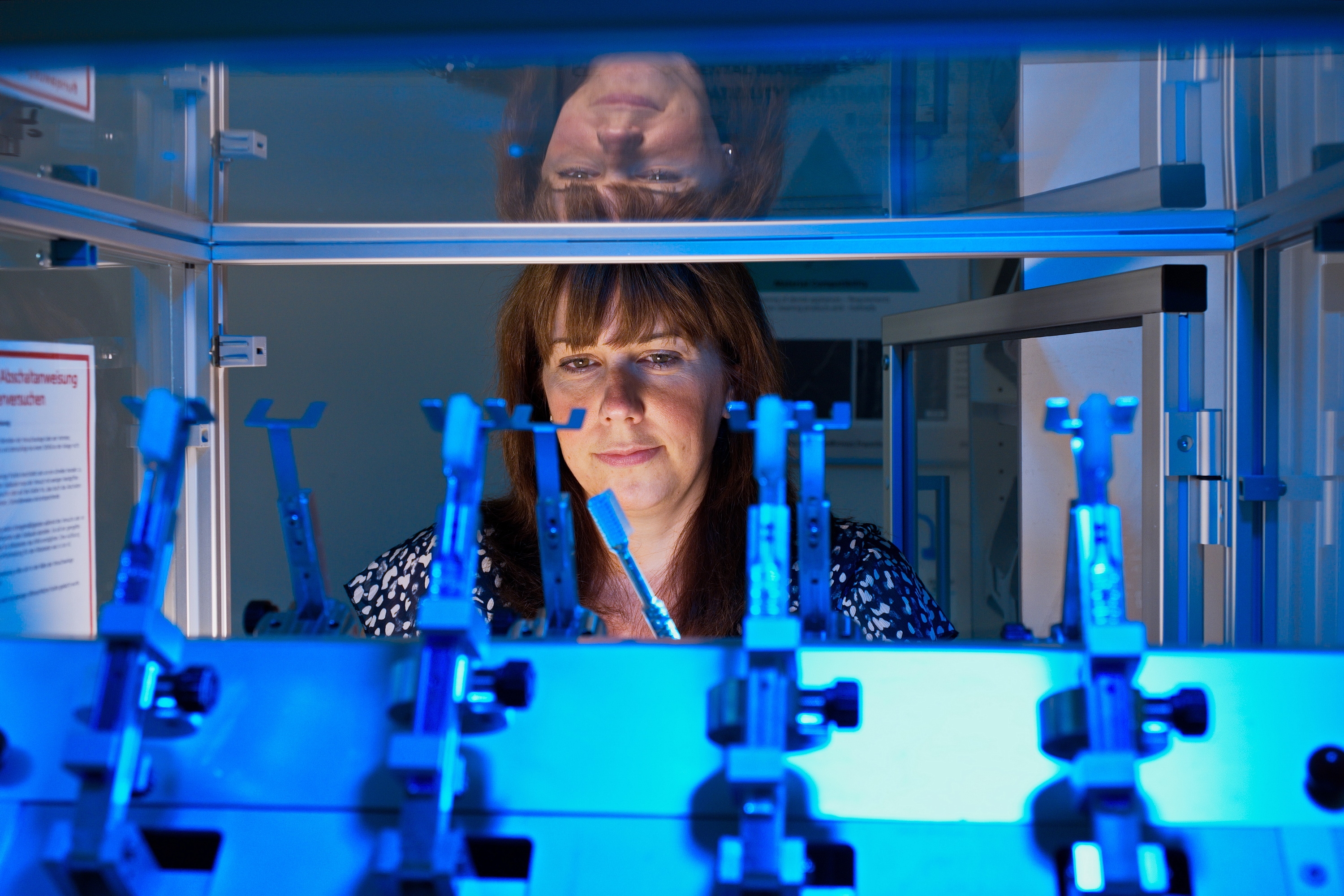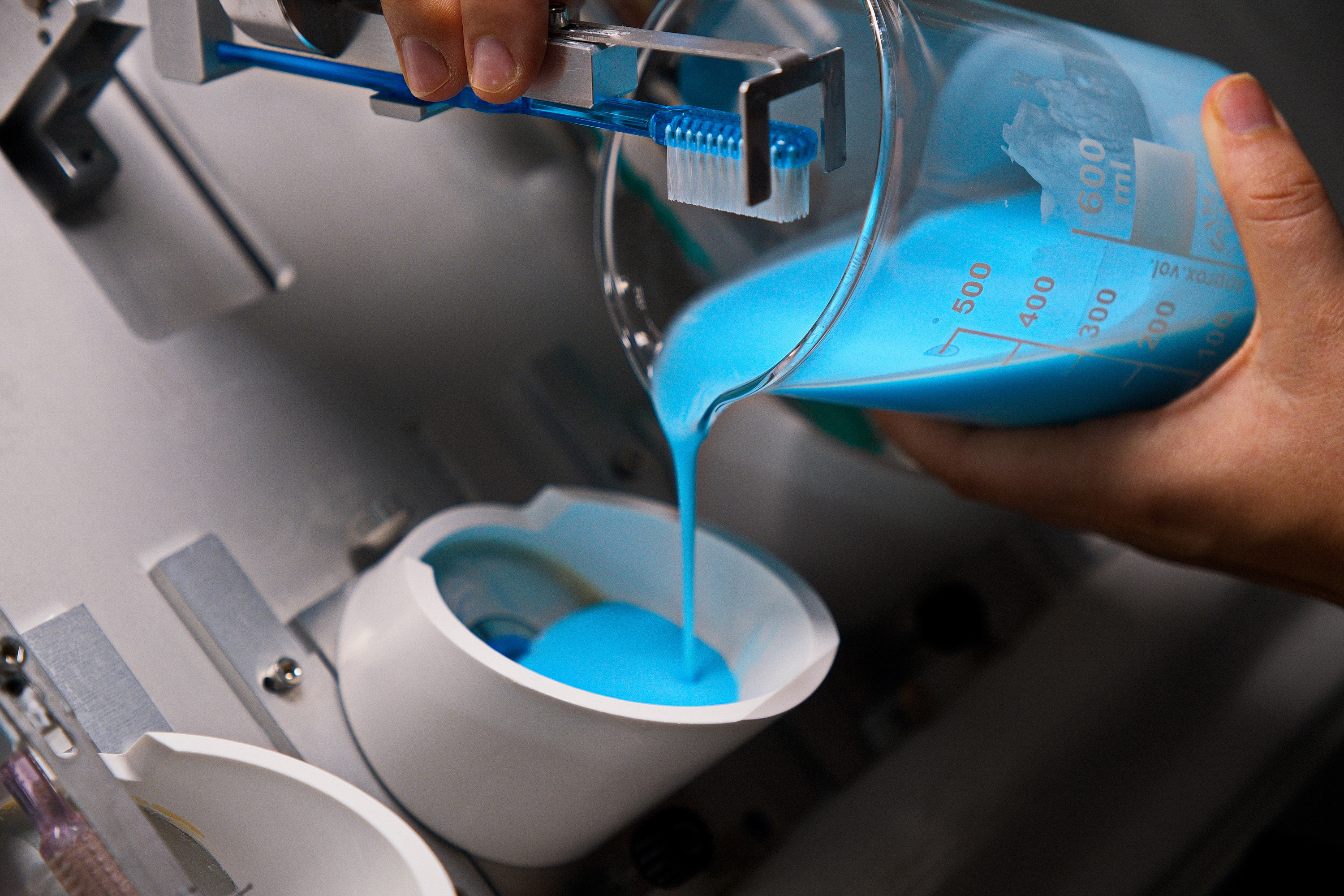
Materials research for dental care

How do toothpastes or mouth rinses work? How does the microstructure of teeth, dental prostheses or even mouth guards differ before and after care? What shape should the bristles of too thbrushes have for optimum cleaning performance? Such questions are investigated by employees in the dental care team at the Fraunhofer IMWS. Their material science studies are the basis for characterizing and improving medical and cosmetic care products.

Cleaning processes, such as the interaction of bristle tip, tooth and toothpaste can be analyzed at the micro and nano level, where tiny friction processes take place. By elucidating such mechanisms of action, new materials and surface technologies can be developed to improve biofunctional properties. In turn, this information can help in the development of products with new, improved material characteristics. This also enables the development and testing of improved materials with, for example, optimized structural and surface compatibility or tailor-made functionalities for medical applications and tissue engineering. All this helps to improve people‘s quality of life. The focus of the “Characterization of Medical and Cosmetic Care Products” group at the Fraunhofer IMWS, which has been in existence since 2012, is always on application-oriented and materials science issues on behalf of research and development partners from both large-scale industry and small and medium sized companies from the dental care endproduct sector and the supplier industry. The team supports product development by characterizing dental care products and elucidating their interaction with biological surfaces as well as prosthetic, orthodontic, restorative and implant materials. This is complemented by the development of new methods, special experimental setups, test procedures and models. Top-level technical equipment and an understanding of the needs of customers, with whom the institute has often been cooperating for many years, complete the range of services. Current application examples include the investigation of the enamel fluoride uptake of new toothpastes, of cleaning effects on dental prostheses, of the tubules-occluding properties of suitable particles in toothpastes to reduce pain sensitivity, or on the development of microplastic-free and biocompatible abrasive particles as well as on research approaches to counteract agerelated dry mouth (xerostomia), which often contributes to the development of caries and periodontitis due to the associated change in the oral flora. Special expertise includes the investigation of products that are effective in terms of de- and remineraization, tooth erosion, hypersensitivity, and tooth discoloration and cleaning. The researchers use these preclinical product evaluations to help companies prepare for elaborate clinical trials. Interdisciplinary collaboration with partners from the R&D sector, such as universities and other research institutions, results in further synergies. For this porpose, the scientists use state of-the-art technologies to elucidate the structures of materials down to the atomic level. With its equipment in the field of material science, the Fraunhofer IMWS is one of the leading research institutions in Europe. Various methods such as 3D x-ray allow non destructive defect localization in dental care issues. The analysis of natural tissue samples is possible in the so-called “environmental scanning electron microscope”. The virtual information from the electron microscope can also help to elucidate mechanisms of action. In addition, in vitro tests and calorimetric flow measurements are carried out.